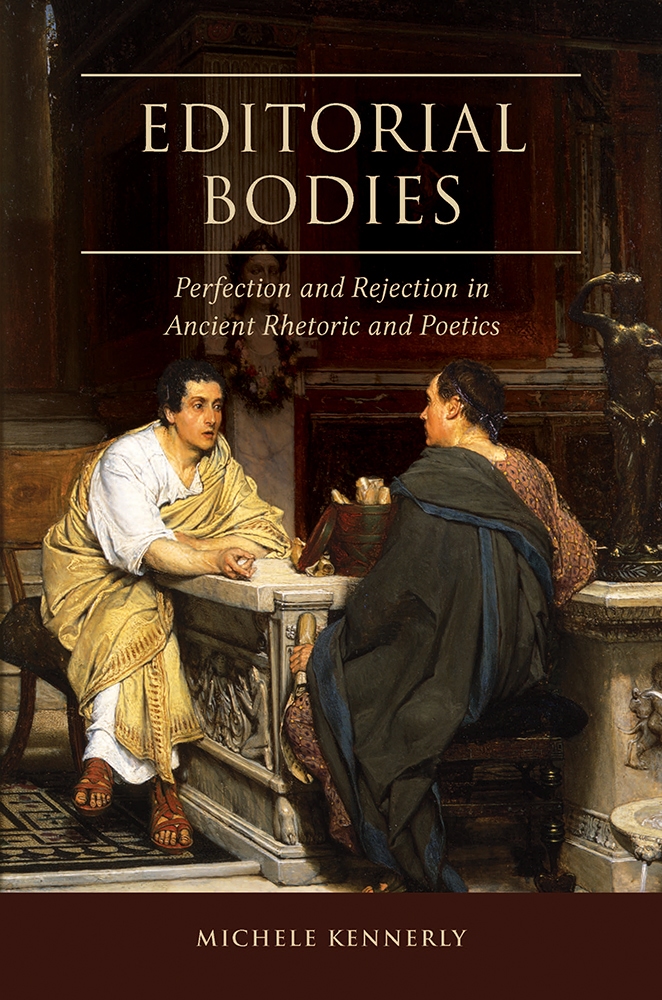Black History Month Sale: 40% off all books, plus FREE SHIPPING on all U.S. orders over $50 | Use code JBHM26

Size: 6 x 9
Pages: 256
Illustrations:
Michele Kennerly
The inclusion of this book in the Open Carolina collection is made possible by the generous funding of
"Michele Kennerly has produced an erudite contribution to the fields of ancient rhetoric, intellectual history, and classics ... At a time when the field is rightly questioning the nature and importance of the canon of the Western "rhetorical tradition," Kennerly's text serves as a model for how historians of rhetoric can use relatively traditional scholarly methods to engage canonical texts in new and important ways: Editorial Bodies suggests both the value and possibility of enlivening old traditions by revisiting them on new terms."—Rhetoric Society Quarterly
"Editorial Bodies demonstrates equal zeal in the breadth of its coverage, the precision of text analysis, and the rigor of research; it attends to large theme and detail at the same time, and makes its argument through attention to physical element...a delight to read in its playful and rich associativeness, epitomizing many aspects of the ancient practices of composing...The book would make a great adoption in any graduate course on classical rhetoric, literacy studies, archival methods, as well as material rhetoric."—Quarterly Journal of Speech
"Kennerly's monograph, tracing the history of authorial revision and editing in Greek and Latin poetry and oratory, is a timely contribution...It also, excitingly, sits at the intersection of a number of other fields: rhetorical theory, ancient literary criticism and the history of the book. Kennerly programmatically positions her book as a work on ancient textual culture rather than ancient literary culture, emphasizing the bookishness and materiality of ancient poetic and oratorical practices."—Bryn Mawr Classical Review
"Michele Kennerly's Editorial Bodies is a daring and delightful study. The labor of the file—editorial work on written versions of Roman orations—is the focus of this highly original monograph. Prepare to be dazzled by Kennerly's erudite engagement with the ancient source languages and her own carefully wrought style."—Susan C. Jarratt, University of California, Irvine
"Editing' has no essence, but it does have a history of specific cultural understandings and practices. Working with texts spanning the classical Greek and Roman era, Kennerly provides an account of editing that is impressive in its scope and in the depth of the analysis of specific authors. She makes a convincing case that understanding what can be called the theory, practice, and politics of editing is a crucial part of comprehending the 'textual cultures' in which rhetoric and poetics flourish."—Edward Schiappa, Massachusetts Institute of Technology
"Michele Kennerly's ambitious book sends a gust of fresh air through the field of ancient rhetoric."—Philosophy & Rhetoric
Winner of the 2019 Eastern Communication Association's Everett Lee Hunt Award
Copyright 2026
Website By Morweb.org